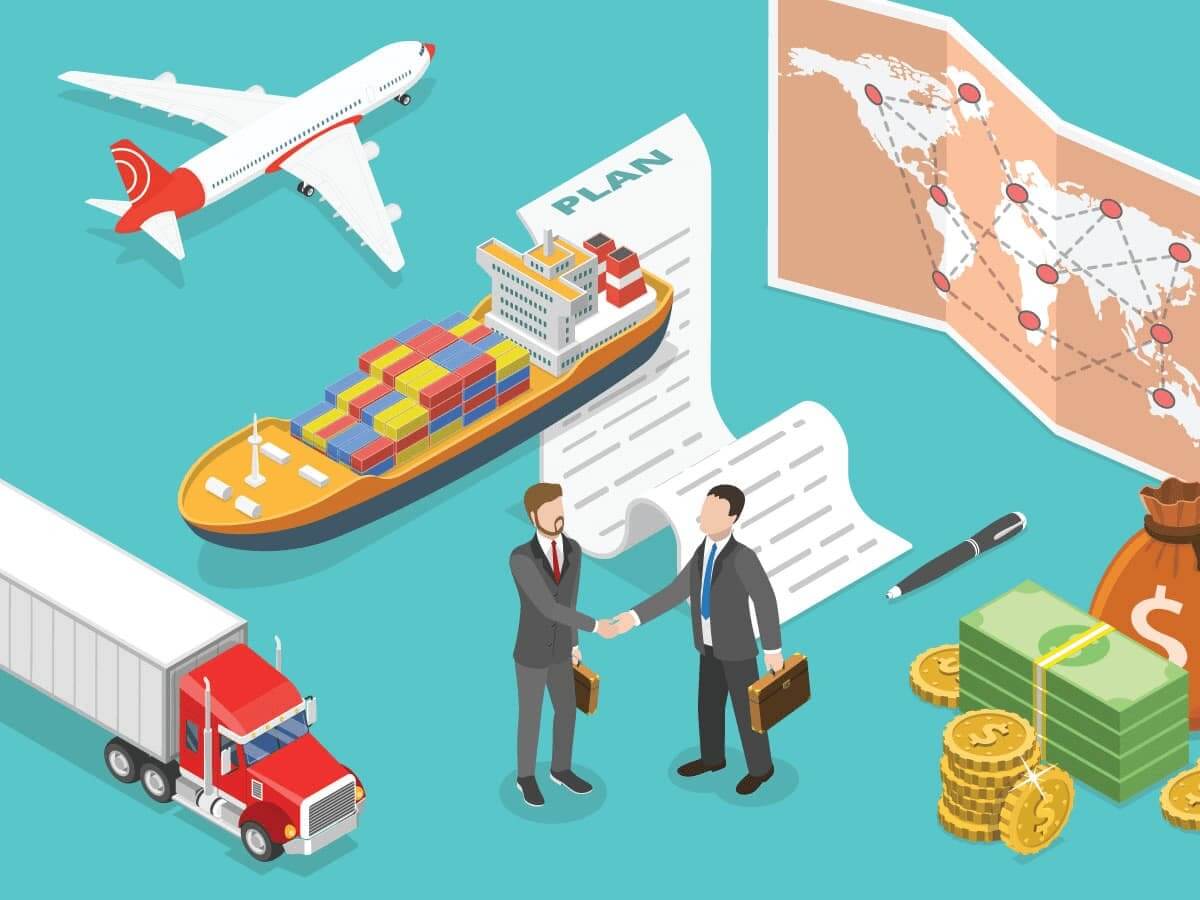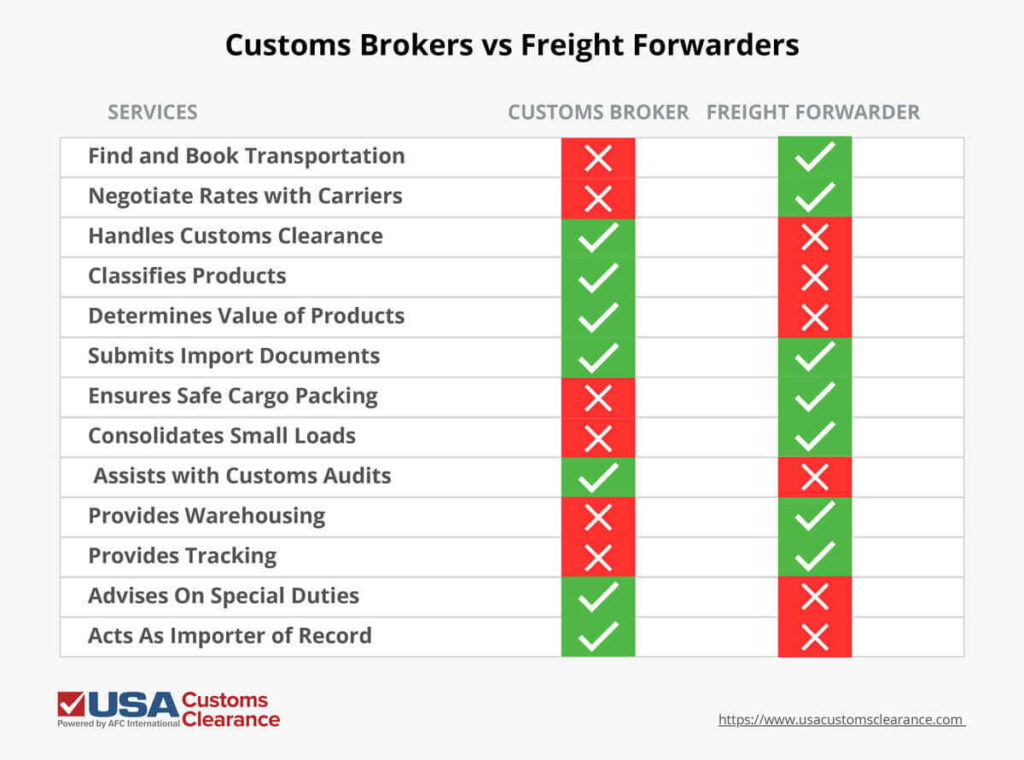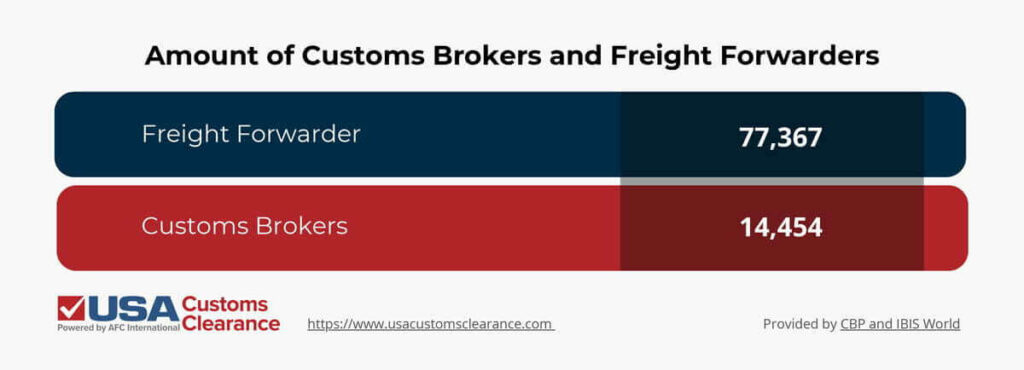
New importers often have trouble telling the difference between customs brokers and freight forwarders. While both professions play an important role in international trade, they each provide distinct services that will help you with international trade.
Key takeaways:
In this guide, I’ll give you with further details about customs brokers and freight forwarders, explaining how each can help you with your importing needs.
Customs brokers are licensed, regulated, and empowered by Customs and Border Protection (CBP) to assist importers in following federal requirements placed on their products.
They can be:
Customs brokers receive training and are certified by CBP. As a result, they are well-informed about various parts of the import/export process.
Many customs brokers also offer consulting services. During these sessions, importers can learn about the regulations they’ll need to follow. At USA Customs Clearance, you can book a session with one of our on staff, licensed customs brokers and receive the vital assistance you need.

We work with you every step of the way to ensure a smooth and stress-free customs experience.
Customs brokers are beneficial because they make importing easier and more efficient. Instead of reading through all the regulations that apply to your products and following them to the letter by yourself, they can take care of these responsibilities on your behalf.
This means you won’t have to worry about your goods being held by CBP or other partner government agencies (PGA) at the port of entry. Even though customs brokers can handle most of the import process for you, there will be certain tasks you’ll have to complete. A customs broker can show you what these responsibilities are and how to perform them correctly.
Related: How To Find A Customs Broker
Freight forwarders are firms that work on behalf of their customers to coordinate the transportation of cargo from one destination to another. Shipping arrangements are their primary service, but they can also be a great source of information about importing needs.
While a freight forwarder is responsible for making sure your shipments arrive in an appropriate time frame, they don’t move the freight themselves. Instead, they enlist the help of actual transportation companies.
Freight forwarders have established relationships with these entities, which allows them to negotiate beneficial prices and efficient routes for their clients.
As a business owner or entrepreneur, you probably don’t have a robust logistics network to move your cargo into the country. Freight forwarders solve this problem by taking care of this challenge for you. They’ll be able to find you land and ocean carriers to move your cargo at an affordable rate.
Customs brokers and freight forwarders have many similarities and differences. I’ve provided a graphic that indicates the services each profession can provide.

Both professions also differ in their numbers. I’ve provided data showing how many customs brokers and freight forwarders are active in the United States.

Most customs brokers and freight forwarders take on more than one client at a time, which means there’s more than enough of these professionals to go around. At USA Customs Clearance, we always have the time to assist with bringing your goods into the country.
Related: Foreign Importer of Record
Now that you know the difference between a customs broker and a freight forwarder, it’s important to determine which one you should use and when. Knowing which situation calls for a specific service will help you time and money.
You should partner with a customs broker when arranging for the entry of goods into the U.S. from another country.
It doesn’t matter whether the goods are for personal or commercial use. If you are buying direct from another country, your product will need to pass through customs clearance.
Navigating through the various rules and regulations of CBP, which are constantly changing, while trying to make sure all documentation is completed correctly and submitted on time, is a hassle - especially if you’ve never gone through the process before.
Most importers and exporters simply do not have the time or expertise to keep up with these regulations. Partnering with a customs broker can give you the flexibility and peace of mind that your imports will be processed correctly every time.
You work with a freight forwarder when arranging the actual shipping of goods into the United States or elsewhere in the world.
Using their skills and connections, a freight forwarder can negotiate the best path for your goods, recommend a mode of transport, and negotiate the cost.
Freight forwarders do work closely with customs brokers because they share many of the same document requirements. For this reason, you should make sure there is clear communication between both entities if they are separate companies.
To give you a better idea on what customs brokers and freight forwarders do, I’ve provided some hypothetical scenarios that showcase the services they provide.
As these examples show, the services of a customs broker and freight forwarder can compliment one another when you import products from overseas.
Related: How To Import Vehicles To the USA
Get help from a Licensed Customs Broker with USA Customs Clearance. Our brokers have decades of experience helping business owners and entrepreneurs import a variety of goods into the country.
They’re also up-to-date on all regulations that will apply to your products. In addition to their support, USA Customs Clearance offers a variety of services that you can use to your advantage.
Experience the difference a Licensed Customs Broker can make today by using one of our services. You can also contact us at (855) 912-0406 if you want to learn more about what we offer.

Our Licensed Customs Brokers can help you import a variety of products into the U.S.
 Copy URL to Clipboard
Copy URL to Clipboard
Add your first comment to this post